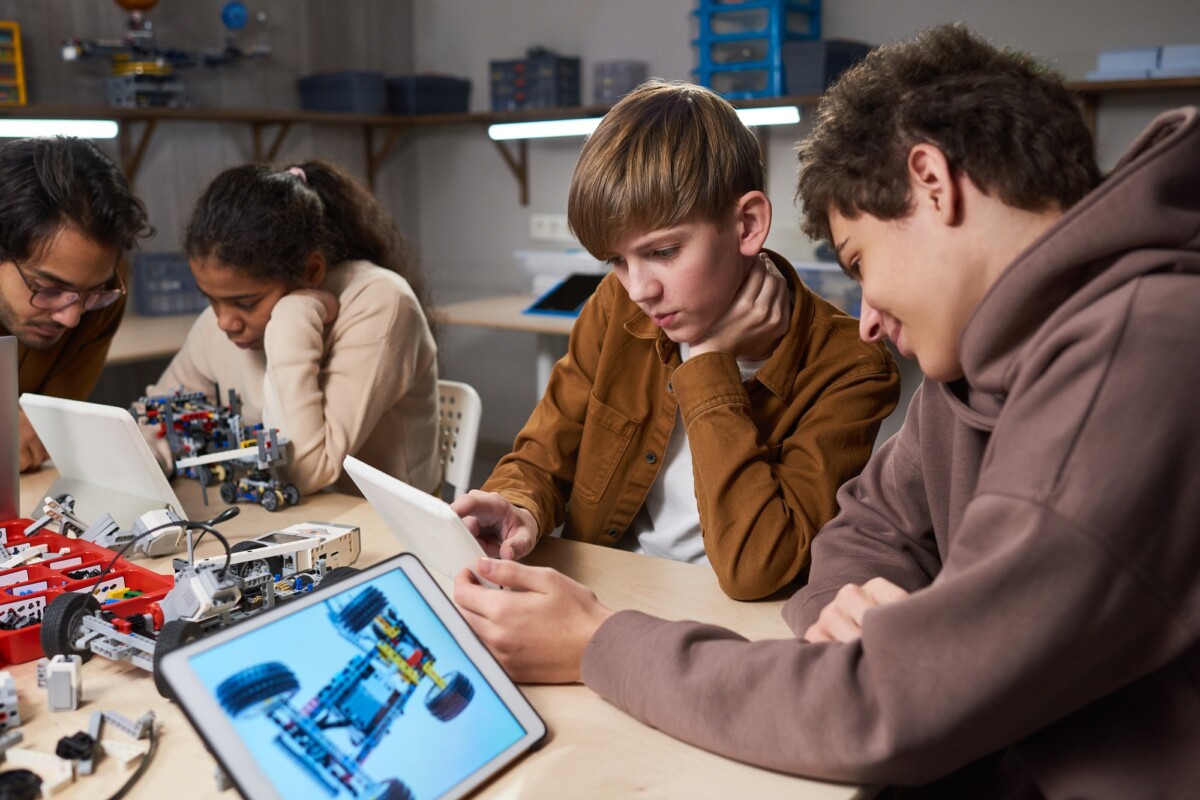Unlocking Potential: The Role of Pre Preschool Programs in Early Learning
Pre Preschool Programs are more than just a fun way for kids to spend their mornings. They lay the groundwork for a child’s future success in school and life. By introducing children to Early Childhood Education at a young age, these programs help develop essential skills that will benefit them for years to come.
Key Benefits of Pre Preschool Programs
- Social Skills Development: Children learn to interact with peers, share, and cooperate through play-based learning activities. This socialization is crucial for building friendships and teamwork skills.
- Cognitive Growth: Engaging in structured activities stimulates critical thinking and problem-solving abilities. Kids learn to explore their environment and ask questions, fostering a love for learning.
- Emotional Readiness: Pre Preschool Programs help children understand their feelings and develop emotional intelligence. They learn to express themselves and manage their emotions in a supportive setting.
In conclusion, Pre Preschool Programs are a vital stepping stone in a child’s educational journey. By focusing on play-based learning activities, these programs not only prepare children academically but also nurture their social and emotional development. This holistic approach ensures that kids are ready to thrive in kindergarten and beyond.
Contact Now to Pursue Your Dream Degree From Your Nearest College
Why Choose Pre Preschool Programs? Key Advantages for Young Learners
Choosing the right educational path for your little one can feel overwhelming. That’s where Pre Preschool Programs come in! These programs are designed to kickstart your child’s journey in Early Childhood Education, laying a strong foundation for future learning. But what exactly makes these programs so beneficial? Let’s dive in!
Engaging Learning Environment
Pre Preschool Programs focus on creating a fun and engaging atmosphere. Through play-based learning activities, children explore their interests while developing essential skills. This approach not only makes learning enjoyable but also encourages curiosity and creativity, which are vital for young learners.
Social Skills Development
Another key advantage of Pre Preschool Programs is the emphasis on social skills. Children learn to interact with peers, share, and cooperate through group activities. This interaction helps them build friendships and understand the importance of teamwork, setting the stage for positive relationships in the future.
Cognitive Growth
Lastly, these programs promote cognitive development. By participating in various activities, children enhance their problem-solving abilities and critical thinking skills. This early exposure to learning concepts prepares them for more structured education, making the transition to kindergarten smoother and more successful.
How Do Pre Preschool Programs Foster Social Skills in Children?
Pre Preschool Programs play a crucial role in shaping a child’s early learning experience. These programs are designed to introduce young children to a structured environment where they can explore, learn, and grow. Understanding the benefits of these programs is essential for parents who want to give their children a strong foundation in early childhood education.
One of the standout features of Pre Preschool Programs is their focus on social skills development. Through play-based learning activities, children learn to interact with their peers, share toys, and communicate effectively. This early exposure to social situations helps them build confidence and friendships.
Key Benefits of Social Skills Development:
- Improved Communication: Children learn to express their thoughts and feelings clearly.
- Teamwork: They discover the importance of working together towards common goals.
- Conflict Resolution: Kids gain skills to resolve disagreements peacefully.
- Empathy: They learn to understand and respect others’ feelings.
Incorporating these elements into early childhood education not only prepares children for school but also for life. By engaging in these activities, children develop essential social skills that will benefit them long after they leave the classroom.
The Impact of Pre Preschool Programs on Cognitive Development
Pre Preschool Programs are vital in shaping a child’s early learning experience. They provide a structured environment where young learners can explore and grow, making it essential for parents to understand their benefits.
Enhancing Cognitive Skills
A key benefit of Pre Preschool Programs is their emphasis on cognitive development. Children engage in play-based learning activities that stimulate their minds, helping them develop problem-solving skills, critical thinking, and creativity.
Social Interaction and Emotional Growth
These programs also promote social skills. Children learn to share, cooperate, and communicate with peers, which is crucial for emotional growth. This combination of cognitive and social development prepares them for future academic success.
Key Benefits of Pre Preschool Programs:
- Structured Learning: Establishes a routine that helps children thrive.
- Play-Based Learning Activities: Makes learning enjoyable and engaging.
- Social Skills Development: Fosters teamwork and communication.
Preparing for Future Education
Pre Preschool Programs lay the groundwork for future educational success by familiarizing children with a classroom setting, reducing anxiety as they transition to kindergarten.
Encouraging Curiosity and Exploration
These programs ignite curiosity, encouraging children to ask questions and explore their interests, which is vital for developing a lifelong love of learning.
In summary, Pre Preschool Programs are essential for early childhood education, providing a strong foundation for cognitive and social development.
Contact Now to Pursue Your Dream Degree From Your Nearest College
Are Pre Preschool Programs Worth the Investment?
When considering the best start for your child’s education, the question arises: Are Pre Preschool Programs worth the investment? These programs play a crucial role in shaping a child’s early learning experience. They offer a structured environment that fosters growth, creativity, and social skills, setting the stage for future academic success.
The Importance of Early Childhood Education
Early childhood education is vital for a child’s development. Pre Preschool Programs introduce children to foundational concepts in a fun and engaging way. Through play-based learning activities, kids not only learn essential skills but also develop a love for learning that lasts a lifetime.
Key Benefits of Pre Preschool Programs
- Social Skills Development: Children learn to interact with peers, share, and resolve conflicts.
- Cognitive Growth: Engaging activities stimulate critical thinking and problem-solving skills.
- Emotional Readiness: Programs help children express their feelings and build resilience.
- Preparation for School: Kids gain confidence and familiarity with a classroom setting, easing the transition to kindergarten.
In conclusion, investing in Pre Preschool Programs is a decision that pays off in numerous ways. By providing a solid foundation in early childhood education, these programs ensure that children are not just ready for school, but excited about it too.
Tailoring Learning: Customizing Pre Preschool Programs for Individual Needs
When it comes to early learning, understanding the benefits of Pre Preschool Programs is crucial. These programs lay the foundation for a child’s educational journey, fostering essential skills that will serve them well in the future. But how can we tailor these programs to meet individual needs?
Understanding Individual Needs
Every child is unique, and their learning styles can vary greatly. By customizing Pre Preschool Programs, educators can incorporate play-based learning activities that resonate with each child’s interests. This approach not only keeps children engaged but also enhances their learning experience.
Benefits of Customization
- Personalized Learning: Tailoring programs allows for personalized attention, ensuring that each child progresses at their own pace.
- Enhanced Engagement: Play-based learning activities make learning fun, encouraging children to explore and discover.
- Social Skills Development: Customized interactions help children develop essential social skills through collaborative play.
- Confidence Building: When children see their unique strengths recognized, it boosts their confidence and eagerness to learn.
In conclusion, customizing Pre Preschool Programs for individual needs not only enriches early childhood education but also sets the stage for lifelong learning.
Discover How CollegeDegree.Education Supports Your Child’s Early Learning Journey
Discovering the benefits of Pre Preschool Programs is vital for parents who want to give their children a head start in life. These programs establish a strong foundation for Early Childhood Education, helping kids develop essential skills through engaging activities. At CollegeDegree.Education, we believe every child deserves a solid start on their learning journey.
Why Choose Pre Preschool Programs?
Pre Preschool Programs nurture young minds through play-based learning activities. This approach not only makes learning enjoyable but also fosters creativity and critical thinking. Key benefits include:
- Social Skills Development: Children learn to interact, share, and collaborate, forming lasting friendships.
- Cognitive Growth: Engaging in various activities stimulates brain development and enhances problem-solving skills.
- Emotional Readiness: Kids gain confidence and learn to express their feelings, preparing them for future challenges.
At CollegeDegree.Education, we recognize that early learning goes beyond academics. Our programs create a safe and supportive environment where children can thrive. By incorporating play-based learning, we ensure your child enjoys the learning process.
The Role of Play-Based Learning
Play-based learning is central to our Pre Preschool Programs. Through play, children explore their environment, develop motor skills, and learn to think critically, fostering a lifelong love for learning.
Building a Strong Foundation
Early Childhood Education is crucial for future academic success. Our programs emphasize foundational skills in literacy and numeracy, preparing children for kindergarten and beyond. Parental involvement is also encouraged, enhancing the learning experience at home and school.
Contact Now to Pursue Your Dream Degree From Your Nearest College
FAQs
-
What is a pre-preschool program?
A pre-preschool program is an early childhood education program designed for toddlers (usually ages 1-3) before they enter a formal preschool setting. -
At what age should a child start a pre-preschool program?
Most programs accept children as young as 12-18 months, though some start at age 2. -
What is the difference between pre-preschool and preschool?
Pre-preschool focuses on basic socialization, sensory play, and early learning experiences, while preschool introduces more structured learning activities. -
Why is early childhood education important?
Early education helps develop social, emotional, cognitive, and motor skills, preparing children for formal schooling. -
What do children learn in a pre-preschool program?
They learn through play-based activities that focus on motor skills, language development, sensory exploration, and social interaction. -
Are pre-preschool programs structured or play-based?
Most programs are play-based, allowing children to explore, interact, and learn in a fun and natural way.



